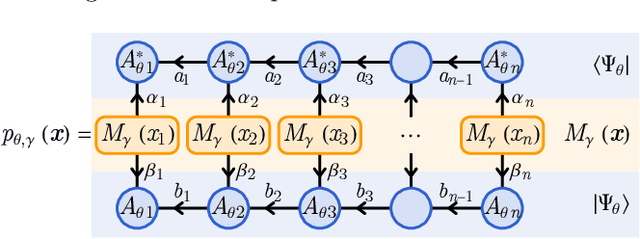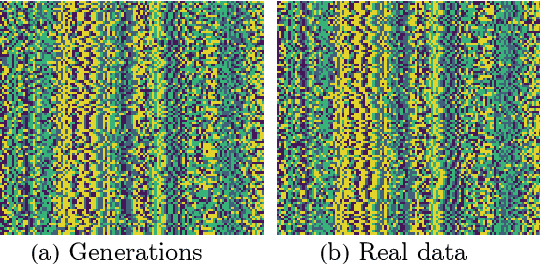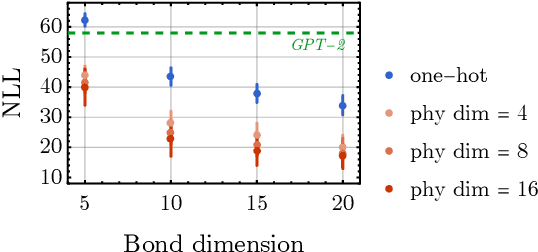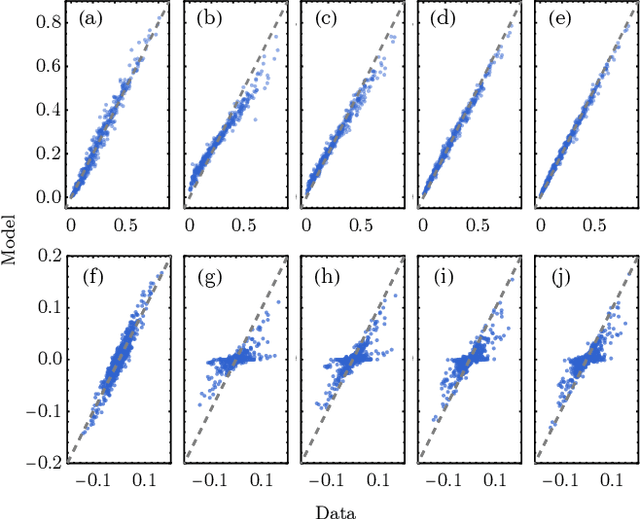Wanda Hou
Quantum Generative Modeling of Sequential Data with Trainable Token Embedding
Nov 08, 2023



Abstract:Generative models are a class of machine learning models that aim to learn the underlying probability distribution of data. Unlike discriminative models, generative models focus on capturing the data's inherent structure, allowing them to generate new samples that resemble the original data. To fully exploit the potential of modeling probability distributions using quantum physics, a quantum-inspired generative model known as the Born machines have shown great advancements in learning classical and quantum data over matrix product state(MPS) framework. The Born machines support tractable log-likelihood, autoregressive and mask sampling, and have shown outstanding performance in various unsupervised learning tasks. However, much of the current research has been centered on improving the expressive power of MPS, predominantly embedding each token directly by a corresponding tensor index. In this study, we generalize the embedding method into trainable quantum measurement operators that can be simultaneously honed with MPS. Our study indicated that combined with trainable embedding, Born machines can exhibit better performance and learn deeper correlations from the dataset.
 Add to Chrome
Add to Chrome Add to Firefox
Add to Firefox Add to Edge
Add to Edge